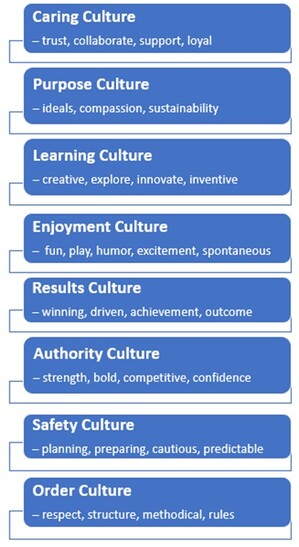In Pursuit of Profit
Read our expert article below or sign up to get articles sent to your inbox.
 When you think of teams that help build and sustain company culture, which teams come to mind? Human Resources? Marketing? Sales? Customer service maybe? These areas of the company are typically entrusted with developing and propagating a culture that encourages employees to do their best work, helps the organization achieve its objectives, and looks good to customers and key stakeholders. But what about accounting and finance? These departments tend to be overlooked when a company is building its workplace culture. To understand why accounting and finance professionals get passed over when looking for a group to adopt and maintain the culture, it is important to understand what company culture is, why it is important, and how an accounting team is in a unique position to help support it. What is Company Culture? According to a comprehensive HR resource called “The Definitive Guide to Company Culture,” 63% of people surveyed think company culture is “very important” or “essential” for their organization’s success. But what is culture exactly? Anything related to how a company operates is part of its “culture,” including (but not limited to):
Company culture is the sum of these parts, defining what a company does and how it does it. These culture elements combine to create a specific cultural style. The Harvard Business Review categorizes company culture into eight style types with the following characteristics:
 However, regardless of the style, the Harvard Business Review explains that a company culture will be shared, pervasive, enduring, and implicit meaning that it spans the entirety of the organization at all levels and can withstand the test of time through both intentional and instinctive actions. Why is Fostering a Positive Culture Important? Having a strong company culture helps attract and retain top talent, which is a key driver of profitability. Companies with a positive culture will have an easier time recruiting because they will typically have candidates coming to them looking for work instead of needing to search for them, resulting in more (and better qualified) applicants for open roles. Furthermore, a positive company culture often leads to:
How Can Accounting Contribute?  Remember, no two company cultures are the same, and there are a wide variety of culture styles. This is important because when people assume that high-energy, customer-facing teams like marketing, sales, and customer service are the only teams driving company culture, they are usually envisioning an Enjoyment or Learning culture. These company cultures, which value fun lightheartedness and creative exploration respectively, are not typically the characteristics associated with accountants. However, Safety and Order cultures embody the kinds of traits that are commonly associated with accounting professionals with a heavy emphasis on planning, preparing, methodical approaches, and rules-based work. In these types of cultures, other employees can benefit greatly from an accounting team’s work ethic and steadfast approach to the job. These types of company cultures can not only learn from their accountants but use them to drive the culture. Regardless of their position in the company, accounting professionals can shape Safety and Order cultures as well as Caring, Purpose, Results, and Authority cultures to boot. BambooHR explains, Everyone in your organization can play a part in developing and maintaining a great company culture. Executives forge initiatives that shape it. Middle managers put those initiatives into action. And employees can strengthen your company’s culture by supporting its ideals… The effect is magnified by collaboration. When employees, managers, and executives unite their efforts and also take full advantage of HR’s participation, they can make more progress together than they ever could separately. Irrespective of what kind of culture exists at an organization, culture is heavily tied into spending. Where a company spends its money says a lot about what kind of values and priorities it has. For instance, companies with a Learning culture will spend heavily on R&D as well as continuing education while organizations with an Enjoyment culture will direct resources towards employee perks and in-office experiences.
The CFO is positioned at the top of the accounting team, giving them the best vantage point to analyze where the company is spending its money and what the return on that investment looks like both fiscally and in terms of impalpable benefits. A CFO or Controller can advise on where changes need to be made to employee compensation, rewards, incentives, recruiting initiatives, and other areas that HR uses to formulate the company culture. As a result, there is a very practical and obvious connection between accounting and culture at the top of the organization. Strong financial leadership can provide the contribution that your company needs to foster a positive culture that lasts. When you are ready to hire a Senior Accounting Manager or Controller, reach out to us for help finding the right cultural fit. |
SUBSCRIBE:DOWNLOAD:DOWNLOAD:Categories:
All
Archives:
July 2024
|
Services |
Company |
|
7/27/2021